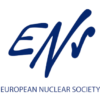High Flux Reactor In Petten Started Up In Advance
The High Flux Reactor (HFR) in Petten, operated by NRG (ENS Corporate Member) started up a day early after maintenance to increase the availability of medical isotopes.
The HFR has about 260 production days per year and has regular short maintenance shutdowns, and twice a year a longer shutdown. To maximize the security of supply of medical isotopes, capacity availability is coordinated with other reactors worldwide.
During the last week, the restart of the Belgian BR-2 had to be postponed due to a mechanical failure of a non-return valve. The facility operated by SCK CEN (ENS Corporate Member) should start the next scheduled cycle on 20 December.
Other producers such as the South African reactor Safari-1 were immediately contacted, and also the Czech reactor LVR-15 should also start up early to produce additional medical radioisotopes.
In Europe, four reactors are responsible for the vast majority of medical isotope production. The High Flux Reactor in The Netherlands, the BR2 reactor in Belgium, the LVR15 in the Czech Republic and the Maria reactor in Poland.
The chain is vulnerable because little spare capacity is available, and said reactors require increasing maintenance.
So, a prolonged unplanned reactor outage often leads to problems in the supply of medical isotopes, which is felt by hospitals and patients. In these situations, other reactors are asked to step in, where possible.
Similarly happened last January, when the MARIA research reactor rescheduled its cycle to supply the HFR delayed start-up.
Read more on NRG Press Release.
Medical applications of nuclear technology are used all over the world. Every year, 30 million people benefit from a diagnostic procedure or treatment by nuclear medicine for at least 60 different pathologies – and these numbers are steadily increasing. New facilities like the PALLAS reactor are crucial in order to meet the rising global demand.
This year, the European Nuclear Society dedicated several events and activities focusing on nuclear medical applications and radioisotopes production and supply.
This one has been also the key topic of the Panel Discussion, opening the last European Research Reactor Conference (RRFM) in Budapest, 6-10 June 2022.
Moreover, last February ENS organised the webinar “Radioisotopes for life. Ensuring European supply – Stakeholders and opportunities”. The final report of the event and the video are available here.
